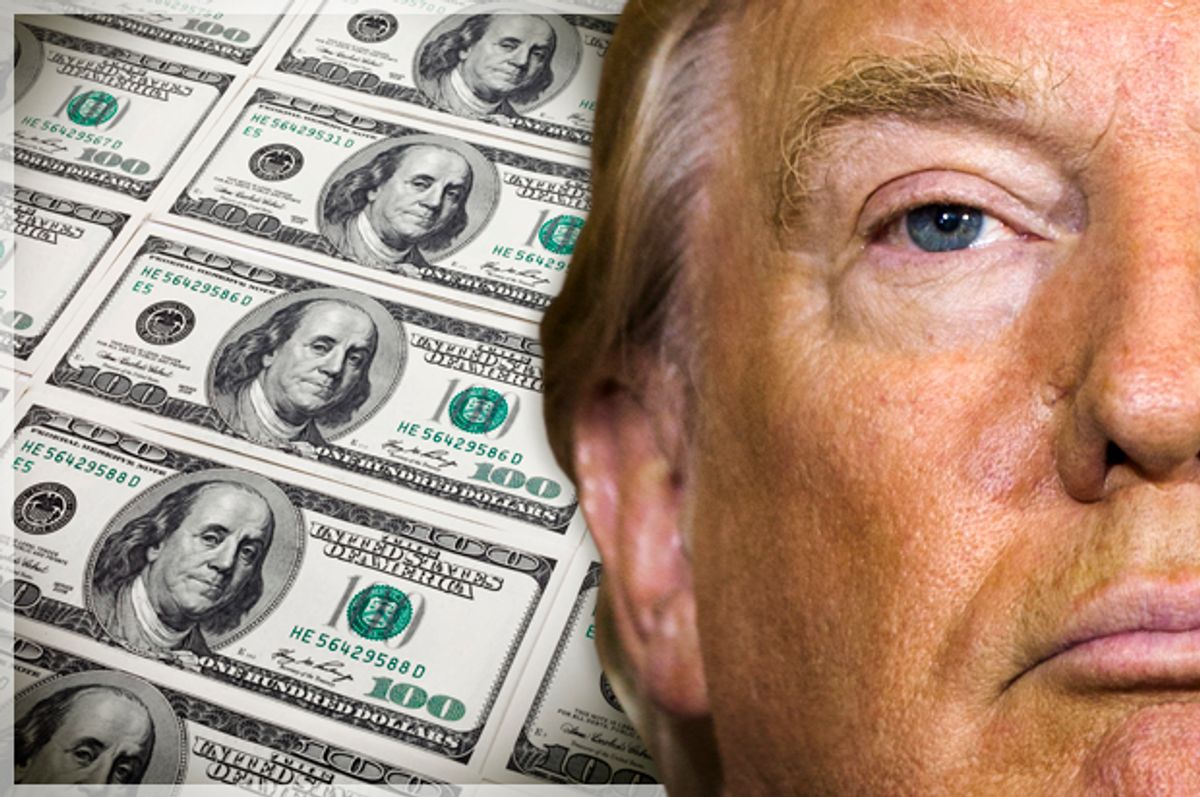While the main scandal of the week is the resignation of national security adviser Michael Flynn, that doesn't mean our president hasn't been getting mired in scandals related to his numerous conflicts of interest. This week's entries include:
Trump supports the One-China policy, as China supports the one-Trump policy.
One of Trump's first major foreign policy kerfuffles after winning the 2016 presidential election was to say that America might be bound by the One-China policy, in which the United States government recognizes China's claim that Taiwan is not an independent country. Late last week, however, Trump reversed course and recognized the One-China policy — and then on Tuesday, China officially registered a trademark for Trump's business empire for which he had been fighting for more than 10 years. Although the trademark was technically granted on Nov. 14 (less than a week after Trump's election), China had 90 days to challenge it. The Chinese government decided not to do so around the same time that Trump conceded a major foreign policy point to them.
No new foreign deals? Guess again!
In another story involving flip-flopping, it seems that the president wants us to forget when Trump lawyer Sheri Dillon told reporters that "no new foreign deals will be made [by the Trump Organization] whatsoever during the duration of President Trump’s presidency." In fact, the president's business empire — which is currently managed by his eldest two sons, Donald Jr. and Eric, and from which he has yet to fully divest himself — is reportedly working on licensing and real estate development projects in Scotland and the Dominican Republic.
Jared Kushner met with Time Warner executives to complain about CNN's coverage of his father-in-law.
While it may not seem like a big deal that President Trump's son-in-law Jared Kushner met with Time Warner executives in recent weeks to complain about how CNN has covered the Trump administration — after all, Trump complains about CNN all the time — the meetings were a tad more ominous when you consider the corporate context.
Time Warner and AT&T are trying to execute an $85.4 billion merger that is being reviewed by Congress, though both CNN and Kushner insist that the subject wasn't broached during their meeting.
Mar-a-Lago questions: Part 1
Last weekend, President Trump and Japanese Prime Minister Shinzo Abe were seen discussing a geopolitical crisis about North Korea in full view of guests at his Mar-a-Lago resort in Florida. But it's a bit problematic that the president was even at his Mar-a-Lago resort with a state official in the first place.
"Hosting a foreign leader at the president’s business resort creates impossible sets of conflicts," Robert Weissman, president of liberal watchdog group Public Citizen, told the Associated Press. "If the president hadn’t offered to pay, the U.S. government would be paying Donald Trump’s business for the purpose of hosting the Japanese leader." Since it's unlikely that the president will always comp the costs for his foreign guests, this will eventually become a more serious matter. Then again, as Weissman added, "Why should you go to a resort in Florida? Fine, you want to go to a resort in Florida? Don’t go to one Trump’s family owns."
Mar-a-Lago questions: Part 2
The following is courtesy of CNN and speaks for itself:
"Swanning through the club's living room and main dining area alongside Abe, Trump was — as is now typical — swarmed with paying members, who now view dinner at the club as an opportunity for a few seconds of face time with the new President," CNN reported.
Aside from the obvious conflict of having people pay $200,000 fees to speak with the president, this reality leads to unseemly incidents like this one.



Shares